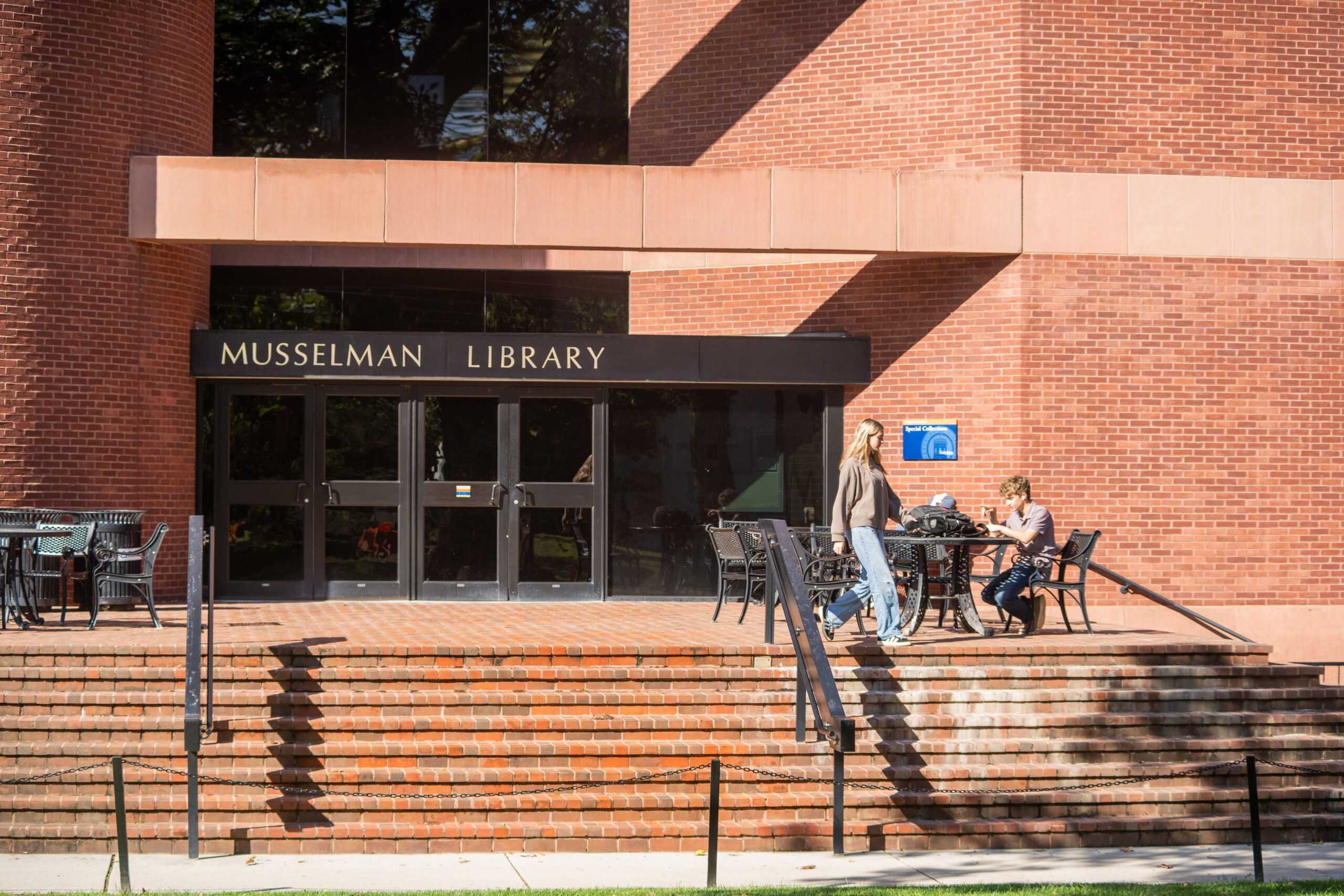Musselman Library Celebrates Open Access Champion 2024

Musselman Library, pictured in October 2024. (William Oehler/The Gettysburgian)
By Theodore Szpakowski, Guest Columnist
This October, Musselman Library selected professor of sociology in educational studies Divonna Stebick as the inaugural Open Access Champion. This award, created to coincide with International Open Access Week, honors her for her work in publishing open access journal articles over the past ten years.
“[Stebick and I] talked about sharing a value especially with working with public school teachers where the work that we do should be accessible to public school teachers, and not just the ones that we work with,” Librarian Janelle Wertzberger explained.
What makes Stebick’s work so meaningful is the collaboration that she incorporates in every step of the process. She works in active classrooms where teachers or administrators have invited her to bring an outside perspective to issues like engagement or literacy. Many of the teachers who invite her to work with them are alumni.
“There’s a lot of time spent on developing relationships,” Stebick said.
Those relationships allow her to be trusted to help with problems in the classroom. After completing a research project, Stebick invites the educators who have worked with her to co-write an article about it. Some educators are very excited about this opportunity, while others are more nervous. They see themselves as teachers, not writers. However, Stebick sees the opportunity to mentor and share the voices of these partners as essential.
“The work wouldn’t have happened without them,” Stebick said.
Finally, Stebick and her co-authors publish the pieces in open access publications where any teacher who is interested in her work can access it online, either on the publisher’s website or in Gettysburg College’s collection of student and faculty work, The Cupola. Pieces that Stebick has published in open access journals like Inquiry in Education and the New England Reading Journal have over 1,000 downloads each.
Wertzberger encourages other writers interested in open access publishing to reach out and make a plan as early in the writing process as possible. Then co-authors can agree on what they want, and the piece can be written with an eye toward potential outlets.
“It’s part of my personal value system that the work we do in the academy should be accessible to the wider world,” Wertzberger said. “I think it’s good for authors and it’s good for readers.”
“Do it. Just do it,” Stebick agreed.
As Stebick has continually worked to publish her own pieces open access, she has also worked to raise the profile of open access publishing on campus.
“They don’t have the same reputation as traditional journals for this campus yet,” Stebick says. “But maybe that will change.”
Wertzberger has noticed increased awareness of open access publishing since The Cupola started publishing faculty work for the public in 2012.
“I no longer have to explain to people so much what open access is and why it’s valuable,” Wertzberger explained.
Ultimately, Stebick hopes to show others how much impact writing with a community partner and making that work accessible can have.
“I hope that the obstacles and challenges that I’ve faced have paved the way for those behind me,” Stebick said. “That’s the only reason I pushed forward.”
This year, the library invites all campus community members to stop by Musselman Library during Open Access Week, Oct. 21 to 27, to view a lobby display celebrating Stebick and suggesting opportunities to follow her path and publish open access.
Editor’s Note: The author of this article is a guest writer for The Gettysburgian and works as a student employee at Musselman Library.
